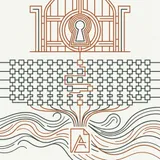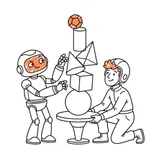Ever wondered if every case cited in court is actually real? It turns out some aren’t

In Georgia, an appeals court threw out a ruling when fabricated cases turned out to be the backbone of a judicial decision. The citations came from AI tools that confidently produced fake precedent—and nobody realized until the fact-check finally happened. Far from a one-off glitch, legal experts warn this is likely to be an ongoing trend in U.S. courts.
Eugene Volokh, writing in Ars Technica, highlights how polished hallucinations—AI-generated citations that look legitimate—are especially dangerous because our legal system assumes good faith. Judges don’t expect citations to be lies masquerading as law .
And artificial intelligence isn’t limited to a single vendor. Major law firms like K&L Gates and Ellis George have faced sanctions—one hefty fine reached $31,100—after filings included bogus authorities spawned from AI outlines that no human had verified. Databases now track dozens of these incidents; since June 2023, there have been more than 95 documented cases in the U.S. alone, many initiated by attorneys, not self-represented litigants.
There’s no call here to outlaw AI outright. Generative tools can dramatically accelerate research. But legal professionals must realize: these systems speak in probabilities, not truths—and they offer no internal mechanism for verifying reality. Even leading legal commentators emphasize that every AI‑suggested citation must be independently confirmed, or else it runs squarely into Federal Rule 11 and ethical duties of competence.
If you’re working in legal tech or litigation, think of AI output like an unvetted intern: promising ideas, but you wouldn’t file anything based solely on their notes without checking. That means backing every AI-assisted brief or declaration with a clear, documented audit trail: who checked what, how discrepancies were resolved, and whether any unresolved risks remain.
Here’s that Ars Technica article that brought this into sharp relief:

In your own workflows, what’s the process for authenticating AI-generated research before it reaches a court filing or opposing counsel?
Comment, connect and follow for more commentary on product counseling and emerging technologies. 👇


